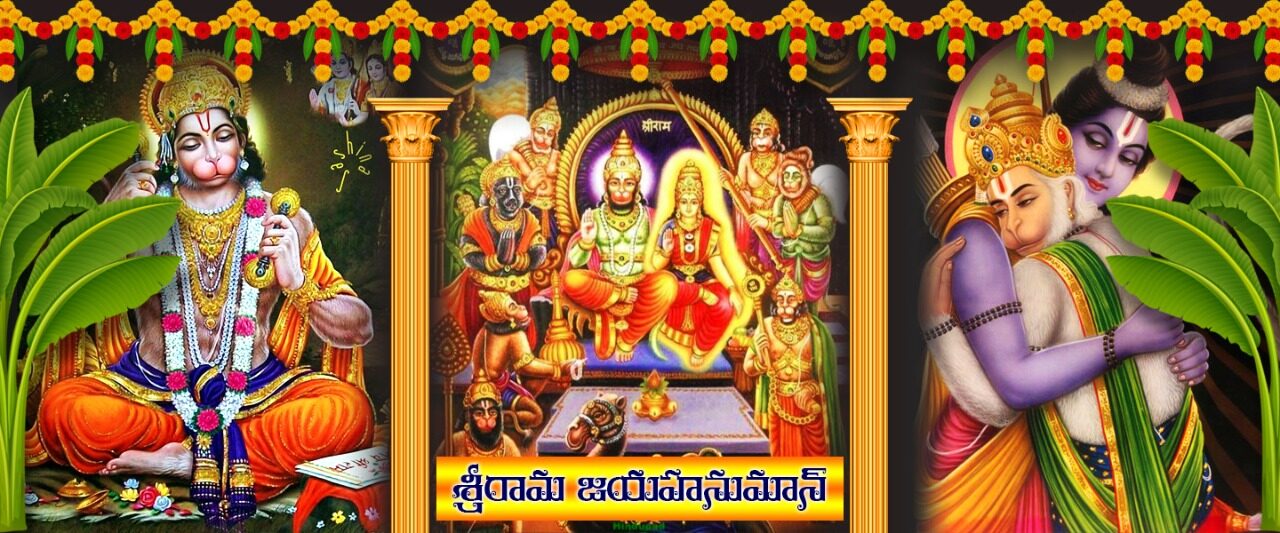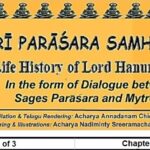 The ascetic Valmiki asked the best of sages and foremost of those conversant with words, ever engaged in austerities and Vaidika studies, Narada saying – “Who at present in this world is alike crowned with qualities, and endued with prowess, knowing duty, and grateful, and truthful, and firm in vow, – who is qualified by virtue of his character, and who is ever studious of the welfare of all creatures? Who is learned, hath studied society, and knoweth the art of pleasing his subjects? And who alone is ever lovely to behold? Who hath subdued his heart, and controlled his anger, is endowed with personal grace, and devoid of malice; and whom, enraged in battle, do even the gods, fear? Great is my curiosity to hear of such a person. Thou canst, O Maharhi, tell me of a man of this description.” Hearing Valmiki’s words, Narada, cognizant of the three worlds, said with alarcity, – “Do thou listen! Rare as are the qualities mentioned by three, I will, O sage, having duly considered, describe unto thee a person endued with them. There is one sprung from the line of Ikshwaku, known by the name of Rama. He is of subdued soul and exceeding prowess; effulgent; endowed with patience; having senses under control; intlelligent; learned in morality; eloquent; crown with grace; the slayer of foes; broad-shouldered; possess of mighty arms, a conch-shaped neck, fleshy jaws, and broad chest; a powerful bowman; the repressor of foe having plump shoulder-blades; of arms reaching under his knees; with a beautiful head, and a graceful forehead; an endowed with excellent might; having symmetrical limbs; and of a cool hue; and possessed of prowess; and having a wide developed chest; with expansive eyes; crowned with auspiciousness and favorable marks; knowing duty; firm in promises, engaged in the good of his subjects; of accomplished well known; furnished with knowledge; pure in body and modest towards superiors; versed in self-knowledge, Prajapati himself; blest with prosperity; supporter of all living being and they stay of order, practising all the duties of his class; preserving those clearing unto him; versed in Vedas and the Vedangas; accomplished in archery; gifted with a good memory; ascertaining with rapidity the truth of the things; the darling of all; unreproved; unvanquished spirit; discerning; proficient in every branch of learning; ever resorted to by the good even as ocean is, by the rivers; worthy of being honored; equal regard to all; and capable of filling the heart with ever-new sensations. Crowned with every grace; he enhanced the joys of Kausalya; being like unto the sea and unto the Himavat in patience. In prowess, he is like Vishnu, and boastheth of the personal attractions of the Moon. In anger, he resembleth the fire raging at the dissolution of all; and in forgiveness, he is like unto the Earth. In giving away, he is like unto Kubera, the bestower of riches and unto the truth, he is like another Dharma.
The ascetic Valmiki asked the best of sages and foremost of those conversant with words, ever engaged in austerities and Vaidika studies, Narada saying – “Who at present in this world is alike crowned with qualities, and endued with prowess, knowing duty, and grateful, and truthful, and firm in vow, – who is qualified by virtue of his character, and who is ever studious of the welfare of all creatures? Who is learned, hath studied society, and knoweth the art of pleasing his subjects? And who alone is ever lovely to behold? Who hath subdued his heart, and controlled his anger, is endowed with personal grace, and devoid of malice; and whom, enraged in battle, do even the gods, fear? Great is my curiosity to hear of such a person. Thou canst, O Maharhi, tell me of a man of this description.” Hearing Valmiki’s words, Narada, cognizant of the three worlds, said with alarcity, – “Do thou listen! Rare as are the qualities mentioned by three, I will, O sage, having duly considered, describe unto thee a person endued with them. There is one sprung from the line of Ikshwaku, known by the name of Rama. He is of subdued soul and exceeding prowess; effulgent; endowed with patience; having senses under control; intlelligent; learned in morality; eloquent; crown with grace; the slayer of foes; broad-shouldered; possess of mighty arms, a conch-shaped neck, fleshy jaws, and broad chest; a powerful bowman; the repressor of foe having plump shoulder-blades; of arms reaching under his knees; with a beautiful head, and a graceful forehead; an endowed with excellent might; having symmetrical limbs; and of a cool hue; and possessed of prowess; and having a wide developed chest; with expansive eyes; crowned with auspiciousness and favorable marks; knowing duty; firm in promises, engaged in the good of his subjects; of accomplished well known; furnished with knowledge; pure in body and modest towards superiors; versed in self-knowledge, Prajapati himself; blest with prosperity; supporter of all living being and they stay of order, practising all the duties of his class; preserving those clearing unto him; versed in Vedas and the Vedangas; accomplished in archery; gifted with a good memory; ascertaining with rapidity the truth of the things; the darling of all; unreproved; unvanquished spirit; discerning; proficient in every branch of learning; ever resorted to by the good even as ocean is, by the rivers; worthy of being honored; equal regard to all; and capable of filling the heart with ever-new sensations. Crowned with every grace; he enhanced the joys of Kausalya; being like unto the sea and unto the Himavat in patience. In prowess, he is like Vishnu, and boastheth of the personal attractions of the Moon. In anger, he resembleth the fire raging at the dissolution of all; and in forgiveness, he is like unto the Earth. In giving away, he is like unto Kubera, the bestower of riches and unto the truth, he is like another Dharma.
“Desirous of doing that which would be acceptable to subject, king Dasaratha, from fullness of affection, wished him to install as his associate in the kingdom his beloved and meritorious eldest son, Rama, of infallible prowess, and endued with sterling virtues, and ever intent on the welfare of the people. Beholding the provisions for the installation, that lady, the king’s consort, Kaikeyi, who had previously been promised two boons, even asked for these, the exile of Rama, and the installation of Bharata. Bound by the ties of duty in consequence of that promise of his, king Dasaratha banished his favorite son Rama. In pursuance of his father’s promise, and with the view of compassing the pleasure of Kaikeyi, that heroic one, commanded by hi sire, wended into the forest. And on the eve of his departure for the forest, the enhancer of Sumitra’s joy and favorite of his brother (Rama), his dear brother Lakshmana, endowed with humility, displaying brotherliness, followed him out of affection. And as Rohini followeth the moon, Rama’s beloved spouse, Sita, sprung in Janaka’s line – like unto an embodiment of Divine power – dear (unto Rama) as life itself, and engaged in acts of good, and furnished with every auspicious mark, and the best of wives, followed Rama. Having been followed far by his father Dasaratha along with the citizens, Rama met with the virtuous and beloved king of Nishadas; and then in company with Guha, Lakshmana and Sita, dismissed his charioteer on the banks of Ganges at Sringaberapura. Then wending from one wood to another, and having crossed many broad rivers, they in accordance with Bharadwaja’s directions, arrived at the Chitrakuta; and constructing a romantic abode, the three began to live there as they listed. And they spent their days in delight, even like gods and Ghandharvas. And when Rama had reached the Chitrakuta, king Dasaratha, distressed on account of his son, went to heaven, bewailing of the latter. And when Dasaratha had ascended heaven, the mighty Bharata, although pressed by the Brahmanas headed by Vasishta, to rule the kingdom, did not wish for dominion. And that hero went after Rama into the forest, with the view of propitiating the worshipful one. (To be continued…..)
(Source: The Ramayana, translated into English prose from the original Valmiki Ramayana in Sanskrit)







Be First to Comment